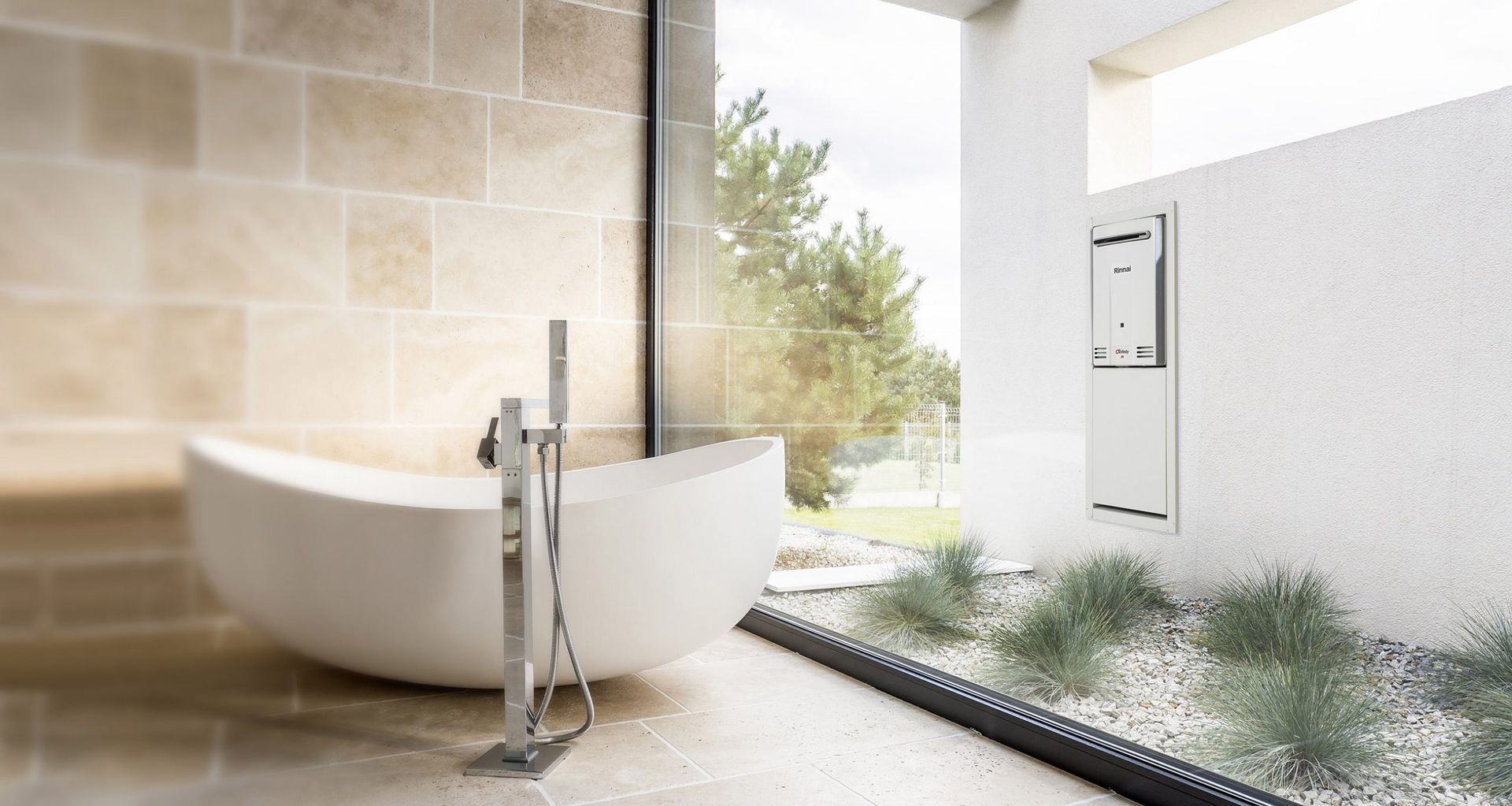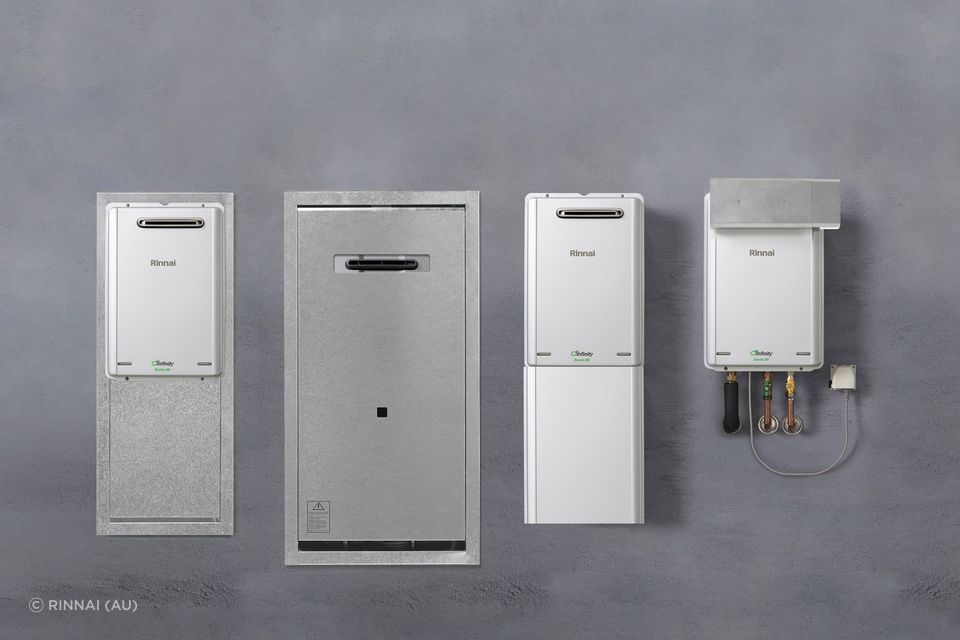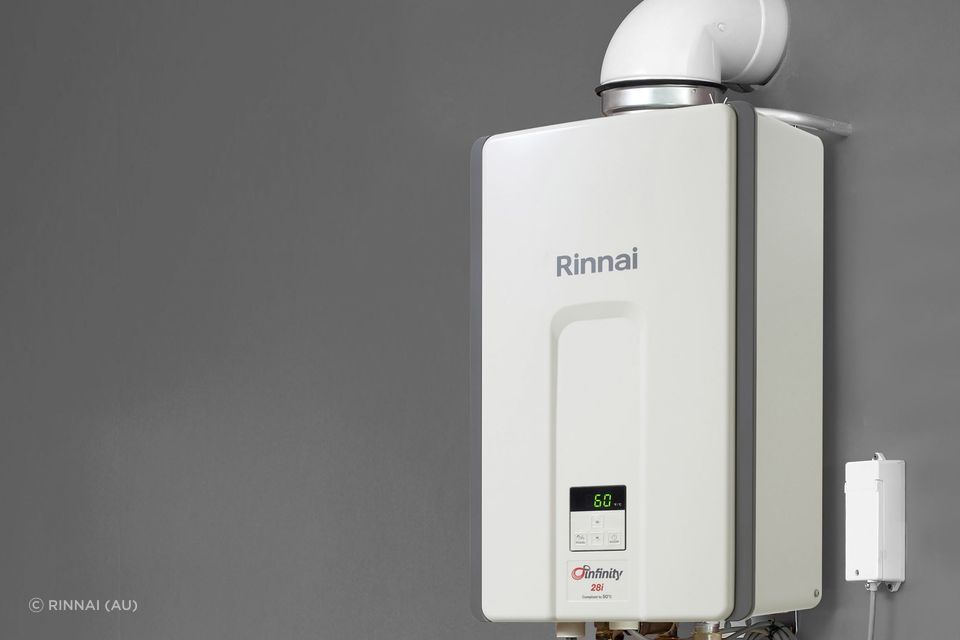Comparing hot water heating systems: what’s best for Australian homes?

As a homeowner, it's important to consider which type of hot water heating system you're going to use. Fortunately, there are many different systems on the market, and within the bunch, you're sure to find the one that's ideal for you. While this process can seem overwhelming, with a bit of research, you'll be able to confidently find the one that suits your home best.
What is a hot water heating system?
A hot water heating system is designed to provide a home with a continuous supply of hot water for everyday needs, such as bathing, cooking, and cleaning. These systems either use an isolated tank to keep water hot and readily available or through a continuous flow system to distribute hot water throughout the house.
Key components of a hot water heating system
- Boiler or heat source: The boiler is the central component that heats the water and circulates it throughout the system. It can be powered by gas, oil, electricity, or other fuels.
- Circulating pump: The circulating pump moves the heated water from the boiler through the system and back again, ensuring that hot water reaches all parts of the building efficiently.
- Expansion tank: The expansion tank accommodates the expansion of water as it heats up. It prevents excess pressure in the system, which could otherwise cause damage.
- Thermostat: The thermostat regulates the boiler's operation to control the temperature. It ensures the system maintains the desired temperature, improving comfort and energy efficiency.
Two different approaches: continuous flow and hot water cylinders
Before you start to consider the type of hot water heating system you want for your house, it’s important to understand that there are two different methods of how water is used to heat your home.
1. Continuous flow
Continuous flow systems, also known as tankless water heaters, provide hot water only when needed. When a hot water tap is turned on, cold water flows through the system and is quickly heated by a gas burner or electric element. This on-demand approach offers substantial energy savings, as there’s no need to maintain a large volume of water at a constant temperature throughout the day. However, these systems can be strained when supplying hot water to multiple outlets simultaneously, potentially leading to a delay in the water reaching the desired temperature and a longer heating cycle. Continuous flow systems are best for smaller homes where instant hot water demand is lower.
2. Hot water cylinders
In contrast, hot water cylinders store a large amount of pre-heated water in an insulated tank, ready for use whenever needed. In other words, hot water is available immediately and can be supplied to multiple taps throughout the house without limitation. Although this option is quite convenient, it does result in using more energy to provide instant hot water. This system is preferred in larger homes with multiple residents.

Types of hot water heating systems
1. Gas hot water systems
Simply put, gas water heaters use natural gas or LPG to heat water. These systems are available as continuous-flow (tankless) units or gas storage water heaters. Continuous flow units heat water on demand, while storage heaters maintain a supply of hot water in a tank.
Advantages
- Energy-efficient operation: Gas systems typically heat water more efficiently than electric ones, reducing energy consumption and costs.
- Continuous hot water supply: Instantaneous systems provide hot water on demand, ensuring you never run out, even during extended use.
- Faster heating: Gas systems generally heat water more quickly than electric cylinders, especially in continuous flow models.
Disadvantages
- Higher upfront cost: Gas systems, especially continuous flow models, can have a higher initial purchase and installation cost compared to electric cylinders.
- Dependence on gas supply: Requires access to a natural gas line or regular refills for LPG, which might not be available in all areas or could add logistical challenges.
- Complex installation: Installing a gas system often requires professional expertise, particularly for venting and gas line connections, leading to higher installation costs.
Pro tip: For maximum efficiency, consider pairing a gas continuous flow system with a smart thermostat to better control energy usage. Also, regularly service your system to ensure optimal performance and safety.
Average unit and installation cost: $1,500 to $3,500
Hot water annual operating cost: Four people or 150 litres per day is about $400 to $500 annually.
2. Electric hot water systems
Electric hot water systems heat water using electrical resistance. One common type is the heat pump water heater, which uses electricity to move heat from the air or ground into the water, making it more energy-efficient than traditional electric systems.
Advantages:
- Simplicity: Easy to install and operate with straightforward technology.
- Compact size: Tankless models are space-saving and can be installed in smaller areas.
- No fuel storage: Eliminates the need for fuel storage as it runs purely on electricity.
Disadvantages:
- Higher operating costs: Electricity is often more expensive than gas, leading to higher utility bills.
- Limited capacity (storage tanks): If demand is too high, storage tanks can run out of hot water.
- Electricity dependency: Reliance on electricity can be problematic in areas with frequent power outages.
Pro tip: If space is limited and your hot water needs are consistent, consider a tankless electric system for better energy efficiency. Ensure the system is appropriately sized for your household to prevent running out of hot water.
Average unit and installation cost: $1,500 to $2,000
3. Air to water heat pumps
Air to water heat pumps extract heat from the outside air and transfer it to water used for heating or domestic hot water. They use a refrigerant to absorb ambient heat from the air, which is then compressed and transferred to a water circuit. This system can provide both space heating and hot water for a home.
Advantages
- High energy efficiency: Uses ambient air to transfer heat, resulting in lower energy consumption than traditional heating systems.
- Environmentally friendly: Reduces greenhouse gas emissions by using renewable energy from the air.
- Versatile: Can provide both space heating and domestic hot water, making it a multi-functional solution.
Disadvantages
- Higher initial cost: The upfront purchase and installation cost can be higher compared to traditional heating systems.
- Performance varies with temperature: Efficiency can decrease in extremely cold weather, potentially requiring a supplementary heating source.
- Space and noise considerations: Units can be bulky and noisy, requiring thoughtful placement and consideration of noise levels.
Pro tip: To maximise efficiency, install the unit in a well-ventilated area with moderate ambient temperatures. Consider integrating it with a solar PV system for additional energy savings and environmental benefits.
Average unit and installation cost: $3,000 to $15,000+
4. Solar water heating systems
Solar water heating systems use solar panels, known as solar collectors, typically mounted on the roof to capture solar energy. This energy is used to heat water, which is stored in an insulated tank. These systems often include a backup heating source, such as an electric or gas booster, to ensure a consistent hot water supply during periods of low sunlight.
Advantages
- Significant energy savings: Solar water heaters can drastically reduce electricity or gas bills by harnessing free energy from the sun.
- Environmentally friendly: Solar heating reduces reliance on fossil fuels, lowering carbon emissions and promoting renewable energy use.
- Long-term investment: While the initial cost is high, the system typically pays for itself over time through energy savings, especially in sunny climates.
Disadvantages
- High upfront cost: Installation costs are relatively high, including the price of solar collectors, storage tanks, and necessary plumbing.
- Weather-dependent performance: The system's efficiency is dependent on sunlight, making it less effective on cloudy days or in regions with less sun. Therefore, it requires a reliable backup.
- Space and aesthetic considerations: Solar collectors require significant roof space, which can be a concern for some homeowners, and they may alter the appearance of the property.
Pro tip: To maximise efficiency, orient solar collectors to face true north (in the Southern Hemisphere) and ensure they are angled correctly for your location's latitude. Additionally, consider pairing your solar water heater with a smart controller to optimise booster use only when necessary.
Average unit and installation cost: $3,000 to $6,000
5. Wetback systems
Wetback systems use the heat generated by a wood burner fireplace or stove to heat water. A wetback is a coil or pipe system integrated into the firebox or flue of the wood burner, which transfers heat from the fire to the water in a storage tank. These systems are popular in rural areas where wood is readily available.
Advantages
- Cost-effective heating: This method uses heat from a wood burner, which may be a more affordable fuel source in rural areas or where wood is plentiful.
- Reduces heating costs: By leveraging an existing wood burner, the system reduces the need for additional fuel, specifically for hot water, lowering overall energy costs.
- Eco-friendly: Using wood as a fuel can be considered a renewable resource if sourced sustainably, reducing dependence on fossil fuels.
Disadvantages
- Complex installation: Installing a wetback system requires integration with an existing wood burner, which can be complex and may require professional installation.
- Limited availability: It is effective only where wood burners are used and where there is access to a reliable wood supply, making it less suitable for urban or non-rural settings.
- Maintenance and safety: Requires regular maintenance of the wood burner and wetback system to ensure efficiency and safety, with potential risks if not properly maintained.
Pro tip: Ensure that the wetback system is properly maintained and that the wood burner is in good condition to maximise the efficiency of the hot water system. Regularly check for leaks and ensure the system is correctly installed to avoid safety hazards.
Average unit and installation cost: $2,000 to $10,000
6. Combination boilers
Combination boilers, or combi boilers, are compact systems that provide both central heating and hot water on demand. They combine the functions of a boiler and a water heater into a single unit, eliminating the need for a separate hot water storage tank. These systems are typically powered by gas and are popular in homes with limited space.
Advantages
- Space-saving: Combi boilers eliminate the need for a separate hot water tank and associated pipework, freeing up space in your home.
- On-demand hot water provides hot water instantly whenever needed without the need for pre-heating or storing large quantities of water.
- Energy efficiency: Generally more efficient than traditional systems because they heat water directly from the mains, reducing heat loss from stored water.
Disadvantages
- Limited hot water output: May struggle to supply multiple hot water outlets simultaneously, especially in larger households or during peak times.
- Higher initial cost: The upfront cost of purchasing and installing a combi boiler can be higher than that of traditional systems.
- Dependency on mains pressure: The performance of a combi boiler is reliant on the mains water pressure. Low pressure can affect the system’s efficiency and hot water flow.
Pro tip: To maximise efficiency, ensure that your home’s water pressure is adequate for a combi boiler. Consider a unit with a higher flow rate if you have multiple bathrooms or high hot water demand.
Average unit and installation cost: $2,000 to $10,000+

Hot water heating system selection — checklist
After understanding the different types of hot water heating systems, it's important to organise your thoughts to get a better idea of which one works best for your home. Here's a simple checklist that goes over key items to help you determine which hot water heat system works best for you:
- Evaluate household needs: Assess your household size, water demand, and lifestyle requirements. In 2022, the average household in Vitoria consumed 16 megalitres of water but you should be able to calculate yours from your utility bill.
- Compare system performance: Look at energy efficiency, environmental impact, aesthetics, and noise levels.
- Consider costs: Compare upfront costs, installation complexity, and potential long-term savings. Research incentives and local regulations that may affect your choice.
- Plan for installation: Review available space and consult professionals to understand installation requirements.
- Make informed decisions: Obtain multiple quotes and seek expert advice to ensure you choose the best system for your needs.
Choose the best type of hot water heating system for you
Selecting the right hot water heating system for your home is a decision that involves careful consideration of your household's needs, energy efficiency, and long-term costs. With various options available, from continuous flow systems and hot water cylinders to more advanced solutions like heat pumps and solar water heaters, each system offers distinct advantages depending on your lifestyle and environmental goals. By thoroughly evaluating your hot water demand, space constraints, and budget and consulting with professionals, you can confidently choose a system that provides reliable, efficient, and sustainable hot water for your home. Ultimately, the right choice will enhance your daily comfort while aligning with your energy-saving and environmental objectives.
Related article: Different types of water filter systems and how to choose the best one for your home
